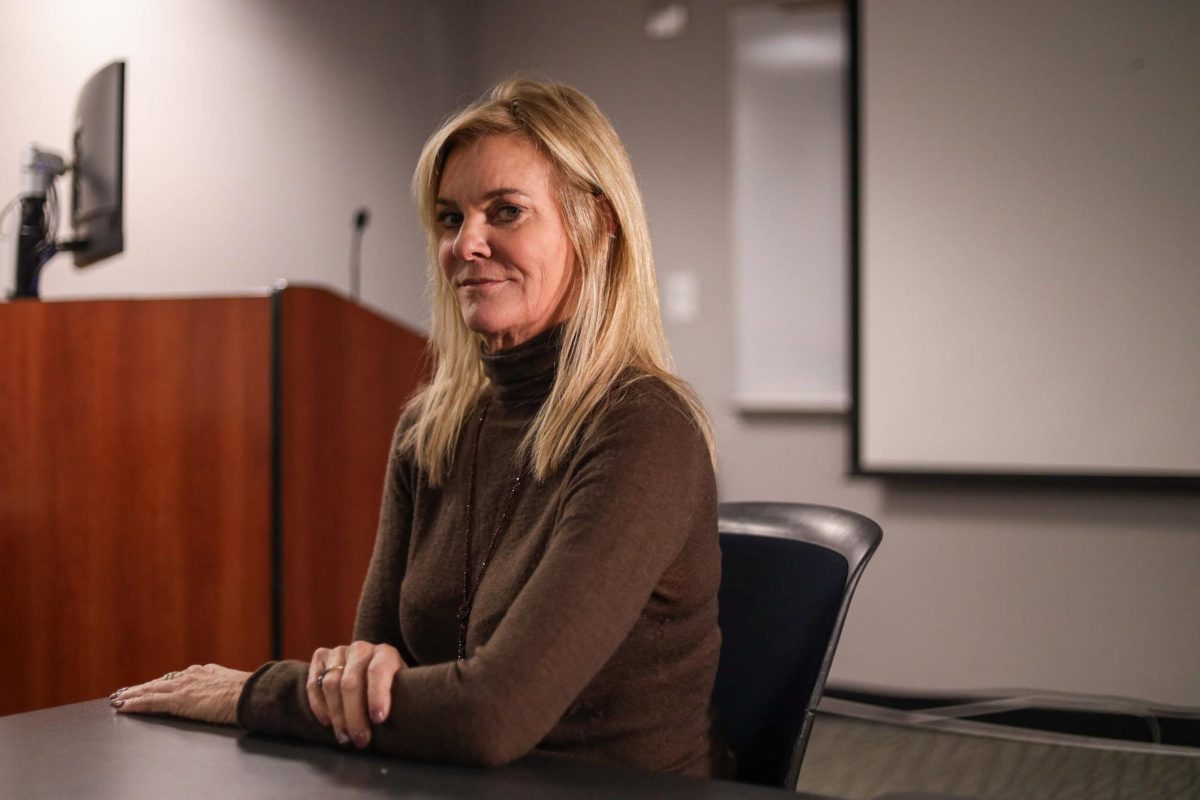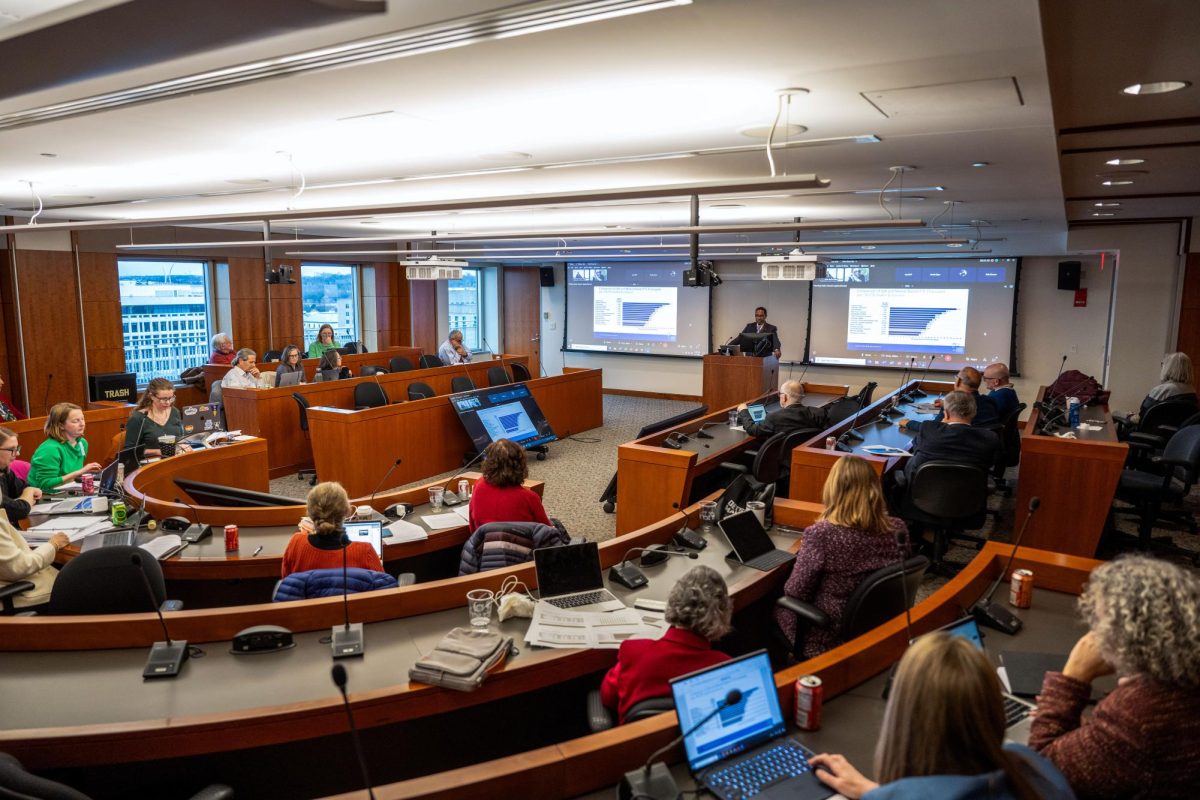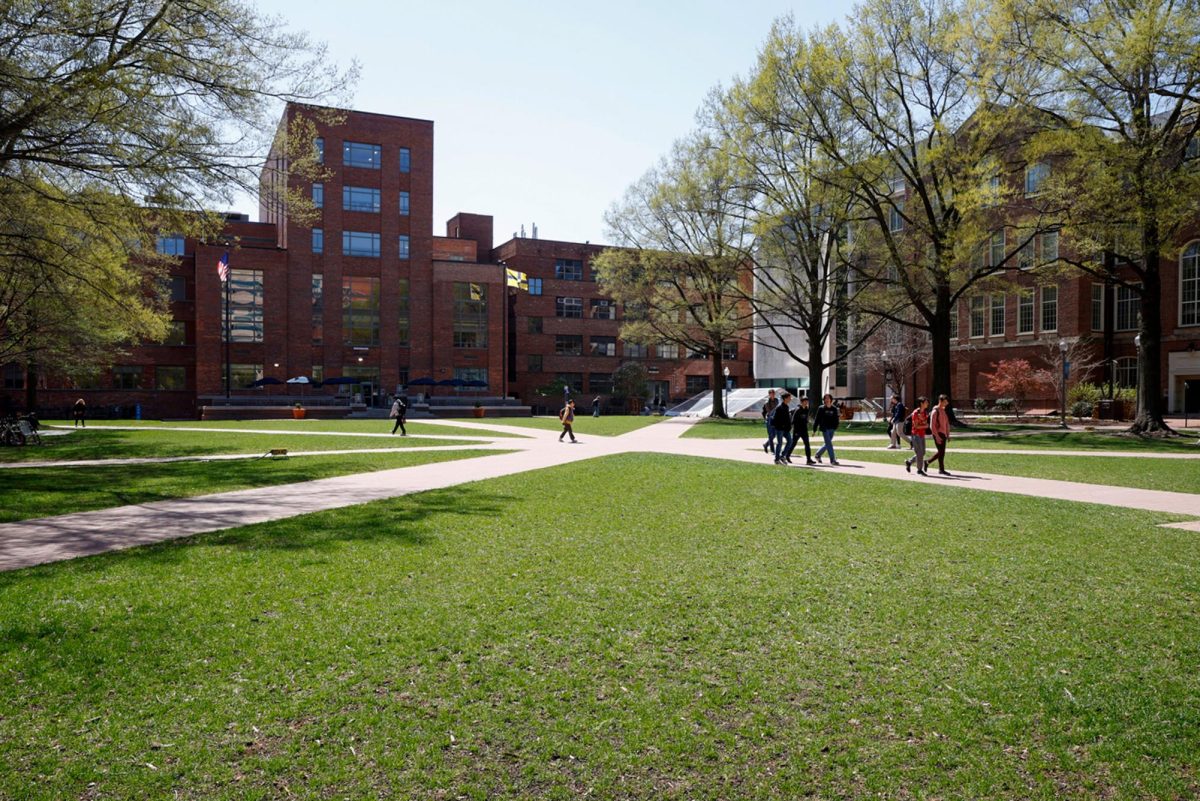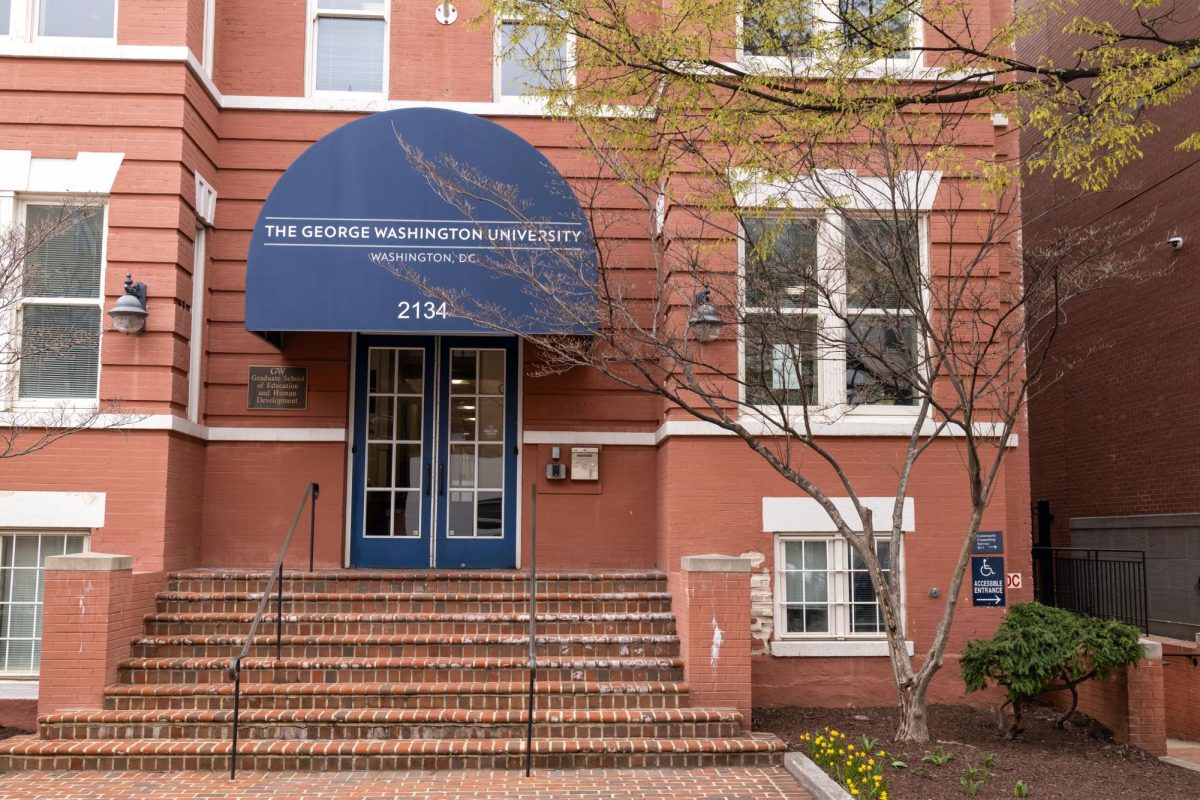At the Washington Post, Katharine Weymouth held roles like associate counsel, sales director, vice president of advertising and publisher, but she wishes she had given one more job a try — being a journalist.
Weymouth, an adjunct professor of media law at the School of Media & Public Affairs who joined the University this semester, said she never gave reporting a shot because it was her family’s “turf.” Now, as a media law professor, she said she hopes to bring her converging backgrounds as a lawyer and as the publisher of the Post into the classroom to show students how cases can be approached from different perspectives.
Weymouth is the granddaughter of Katharine Graham, the former chairwoman and publisher of the Post, the daughter of Lally Weymouth, a journalist and senior associate editor of the Post and the niece of Donald Graham, the Post’s former publisher. She is also the niece of Tina Weymouth, the bassist for the Talking Heads.
“I took a totally different path, but I actually love journalism,” Weymouth said. “I’m a total junkie. All I do is read all the newspapers and everything I can lay my hands on, so I wish I had had more courage and taken the journalism path.”
Weymouth said her path to the Post was “accidental” and that in 1996, one of the partners at her former law firm Williams and Connolly sent out an email to the firm’s associates about the Post being short-staffed by one attorney and needing a lawyer for three months. She said she had just finished a trial and was “exhausted” but decided to accept the position to see what it was like to work for the “family business.”
“I joined as a lawyer there, and I really just loved it,” Weymouth said. “It’s always been important to me to be part of something that is mission oriented, whether it’s education or journalism or a case you’re arguing or whatever it is, so I think that’s what really appealed to me about it.”
When she was hired as publisher in 2008, Weymouth said she first merged the print and digital entities of the Post into one organization because she had worked for both sides and saw “tension” between the two. She said she and Marcus Brauchli, the first editor she hired in 2008, started the Post’s 24-hour news cycle by having reporters covering the news around the clock so that readers had the news as it was happening.
“Digital’s the future, but of course, the print side is producing all the news that’s going digital,” Weymouth said.
Weymouth said one of the biggest challenges she faced as publisher was in 2009 when she attempted to launch a live events business called Washington Post Live. She said the Post planned a series of dinners to sell sponsorships and advertisements in the paper, but fliers for the events made it seem like “pay-for-play” dinners, which she said was never her intention.
“I was on the front page of the New York Times as ‘publisher stumbles’ and all that, and I had never been in the public eye like that before,” Weymouth said. “I cried my eyes out for two weeks, I offered my uncle my resignation, but I would also say, like many mistakes, it was a great lesson for me and a learning opportunity.”
Weymouth said after the public backlash she and the Post received, she had journalists tell her that she did not understand the business. She said it was a learning opportunity and told her staff she accepted full responsibility for it but told them the paper should continue to be able to take risks.
After 80 years of the Graham family’s ownership of the Post, Weymouth said she and her family made the difficult decision to sell the newspaper in 2013 because it was no longer a “sustainable” business model and shareholders were “not on board” with losing money.
She said she could not see a way out of financial losses without cutting costs to the point where the Post would not be the same publication that readers and journalists currently “know and love.” The Post reported in 2013 that Weymouth explained to her uncle, the then-chief executive, that the paper was slated to face a seventh-straight year of declines in revenue.
This decline led to Jeff Bezos, the founder and executive chairman of Amazon, purchasing the Post in a $250 million sale in 2013.
Weymouth said it was the “rational” decision to sell the Post to Bezos, who has proven to be a “good steward” through actions like standing by the Post when Trump attacked the paper during his first term.
“He really has not interfered much, so I think that has all been great for the Post,” Weymouth said. “But it has been publicly reported, they lost a lot of money last year, so the business challenges remain.”
Weymouth said Bezos has faced “challenges,” like the Post losing more than 70 million dollars in 2024 and facing blowback in the newsroom and from readers after the his decision to “kill” the Post’s opinion section presidential endorsement. She said Bezos tapped Will Lewis as publisher and CEO in late 2023 — a decision met with controversy — to try and grow subscriptions, increase readership and turn the Post into a publication for “all people.”
Weymouth said she does not believe it “matters per se” if large media outlets like the Post are owned by billionaires. Instead, the challenge surrounds the motivations of the owners, who have a strong “fingerprint” on their publications and use them as “mouthpieces,” she said.
She said Bezos has kept a “light touch” on the Post.
“The way my family tried to operate the newspaper was to let the journalists do their job and tell important stories, and we were there to run the business and support them,” Weymouth said.
In her classes, Weymouth said she plans on discussing more “practical” media law cases, like her grandmother’s decision to publish the Pentagon Papers despite potentially risking the Post’s business. She said she hopes to show students cases where national security interests intersect with the right of the public to know information.
Weymouth said she had her students make arguments about the Jan. 6, 2021 attack on the Capitol as if they were lawyers or judges deciding whether the riot and Trump’s comments incited violence or were protected by the First Amendment.
“I’m just hoping they can know the case law but also bring it into their daily life, or when they’re writing their own stories or reading a story in the paper, able to think about it from a different lens,” Weymouth said.
Weymouth said journalism is more necessary than ever because of the “massive erosion” of trust in the news media, exacerbated by Trump and his followers, who deny the credibility of news outlets because they do not like what is published.
She said she is “heartened” by how many students are still interested in pursuing journalism.
“We need great people going into the field, whether it’s through documentaries or photographs or writing articles or doing a blog or whatever it is,” Weymouth said. “I hope people who are interested in the field won’t be scared away by all the challenges the industry faces and will go out there and do great work.”








